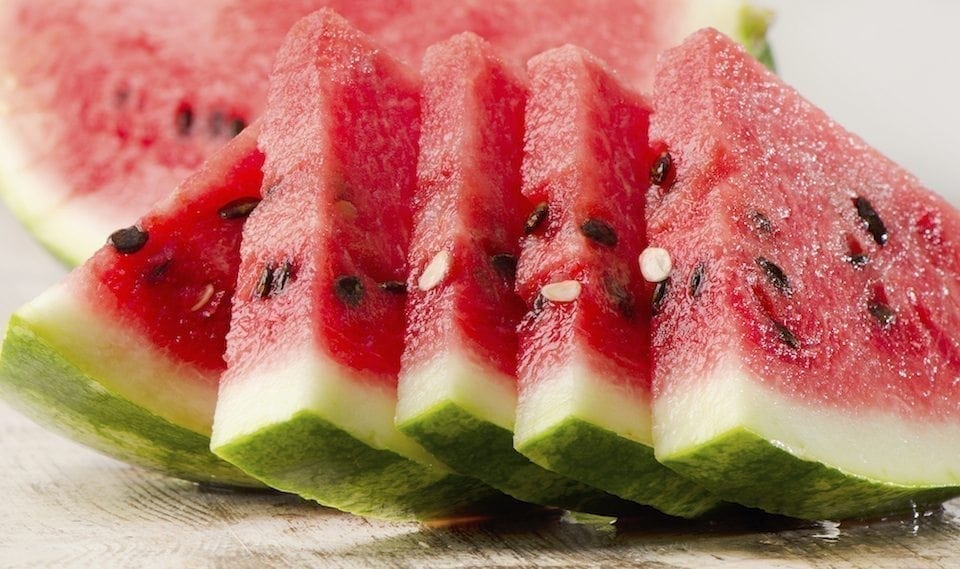Drinking sugary beverages plausibly increases your risk for weight gain because:
- The high sugar content provides an abundance of empty calories
- You don’t feel appreciably fuller after drinking a sugary beverage
- You don’t eat fewer calories to make up for the calories you drink
But, some scientists are wondering if there’s more to the story. Sucrose (ordinary table sugar) is made up of two different sugars: glucose and fructose. Because of the way our body metabolizes fructose, it developed a bad reputation. Beyond metabolism, scientists want to figure out if our brain responds differently to fructose versus glucose. And how might this impact our appetite and food choices?
What the Science Says
Large population-based studies currently link sugary beverages to weight gain. The problem with these studies is that scientists can’t isolate the effects of glucose and fructose since they don’t have the resources to standardize the diets of thousands of participants. To drill down on the effects of fructose versus glucose, scientists collected detailed data from 24 healthy adult participants.
In this study, University of California, Los Angeles (UCLA) scientists randomly assigned participants a 10-ounce liquid containing either 2 ounces of fructose or glucose. Data was collected before and after participants sipped their sweet drink. The volunteers served as their own control. How? They came back on later days to receive the drink they didn’t receive the first time around; for example, if they’d received fructose the first time, they received glucose the second time. To be consistent, the volunteers had to fast both times before ingesting the sugar drinks, as well as keep their diets and exercise routines the same.
Sugary Findings
Once the data was collected, scientists could see how participants fared on the fructose versus the glucose drinks. Interestingly, participants reported their hunger and desire to eat decreased after both the fructose and glucose drinks. Not surprisingly, most found both drinks pleasant to their tastebuds. But despite reporting less hunger and desire to eat, participants’ brain scans and food choices told another story:
- Participants’ brains responded more readily to food pictures after drinking fructose compared to glucose. This showed up as greater visual cortex activity in the participant’s’ brain MRI scans. This is interesting because it suggests that participants may be more motivated to eat after a dose of fructose.
- Fructose drinkers were more likely to choose food over a delayed money reward compared to glucose drinkers. This is interesting because it implies that after drinking fructose (versus glucose) we can subconsciously pick immediately calorie-gratifying choices over long term benefits.
- Blood insulin levels and blood sugar were higher in glucose drinkers than fructose drinkers. We’re always talking about preventing sugar highs, sugar lows and insulin surges, so this is good news for fructose, right? Not necessarily. Two factors that help our bodies feel more satiated after eating is having moderately higher insulin and blood sugar levels—though moderation is key. Fructose doesn’t appear to help with satiety, likely due to the way it is metabolized.
What’s the Takeaway?
While it’s interesting to learn how fructose and glucose affect us differently, we rarely eat fructose and glucose in isolation. Instead, most of us get them through table sugar (and any of its 44 cousins), which is 50% fructose and 50% glucose. It’s clear pure fructose isn’t good for you health-wise. The best way to reduce your intake of fructose is to eat less added sugar.
For those overzealous about slashing sugar from their diets, this is a great time for a public service announcement—on behalf of fresh fruit.
Fruit does contain fructose, but the amounts are relatively low. Plus, fruit contains plenty of fiber to slow down fructose absorption. Additionally, fruit is a natural source for valuable antioxidants, phytochemicals and vitamins like C, A, folate and so forth. In healthy people, eating fruits and vegetables is shown to lower your risk for heart disease, diabetes, cancer and so much more. It’s the one piece of diet advice you can always count on!




